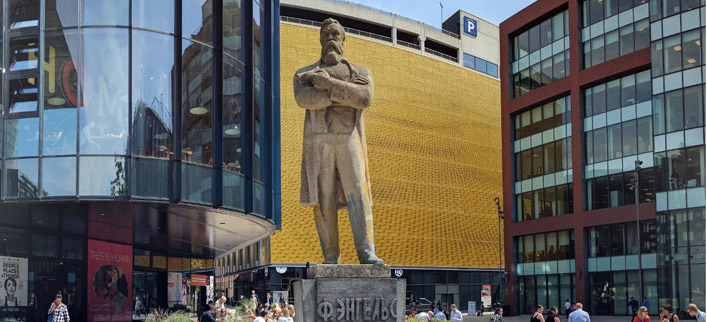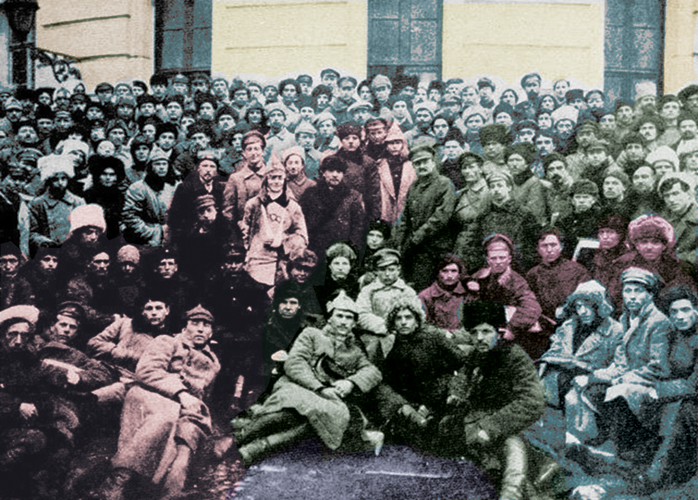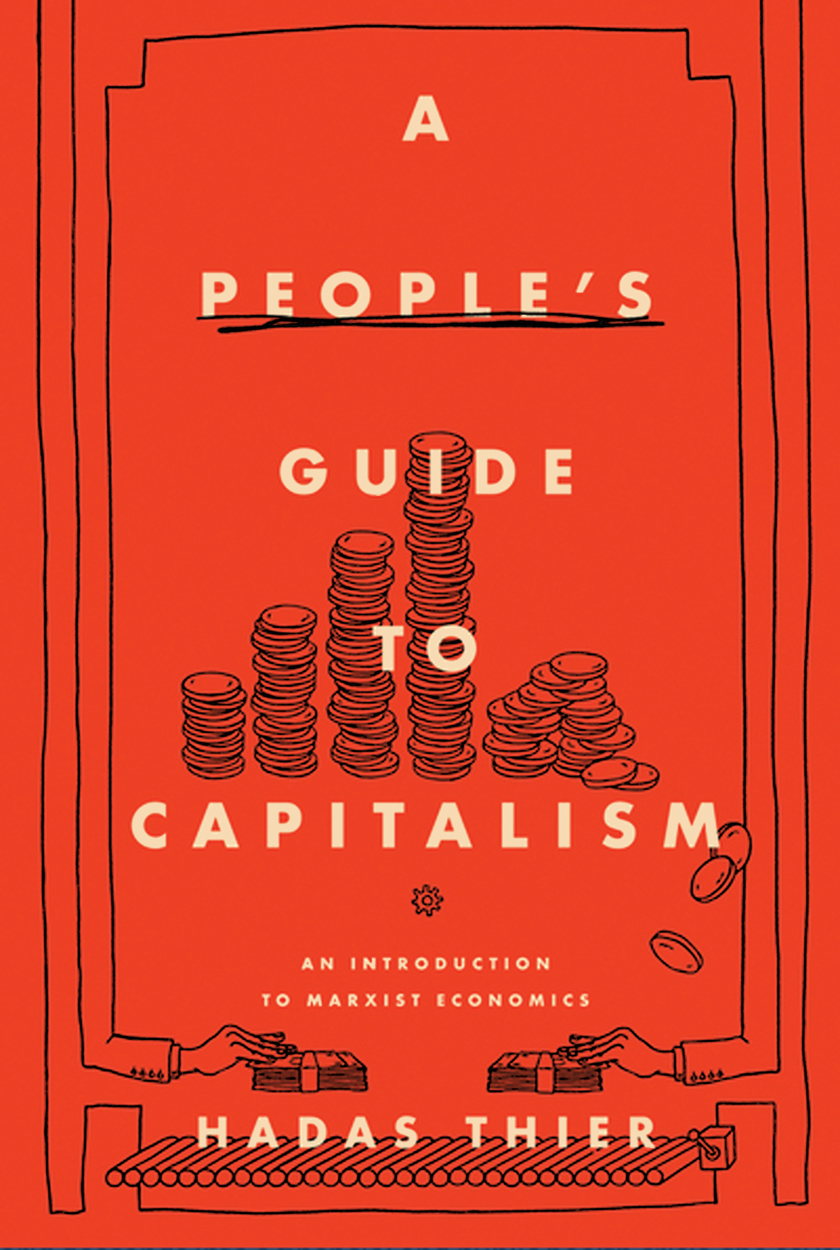Socialism
Communism in the Suburbs?/Retroactive Utopia of Socialist City
Online: Zoom link will be provided to registered participantsROGER: The core message here is the need to focus on the small and hidden histories, the buried stories of the everyday, the extinguished but smoldering fires at the grass roots of urban society. OWEN In the center of Manchester, you can find two artefacts of the Soviet Union’s attempt to fuse art, architecture and everyday life. One is now fairly wellknown. Standing in Tony Wilson Square, a developer-owned ‘Private Public Space’ standing in front of the arts center ‘Home’, facing various new luxury office and residential units, is a statue of Friedrich Engels.
China’s Engine of Environmental Collapse
Online: Zoom link will be provided to registered participantsAs the world hurtles towards environmental oblivion, China is leading the charge. The nation's CO2 emissions are more than twice those of the US with a GDP just two-thirds as large. China leads the world in renewable energy yet it is building new coal-fired power plants faster than renewables. Richard contends that nothing short of drastic shutdowns and the scaling back of polluting industries, especially in China and the US, will suffice to slash greenhouse gas emissions enough to prevent climate catastrophe.
Capital, Volume 3, Part 7, the last chapters of volume 3
Online: Zoom link will be provided to registered participantsThe study of Volume III is essential to understanding the complex dynamics at work in the present realities we are facing and how these realities are the necessary results of the inner logic of capital. In this moribund stage of late capitalist/imperialist development we see the rise of rentier and finance capital—the introduction of financial instruments being used to make money make more money, jumping over and above the actual real wealth produced by trading on future wealth (derivatives and other forms of fictitious capital); overriding supply and demand as a price mechanism in such necessities as foodstuffs so that their prices continuously rise resulting in more poverty and starvation on a world scale and here in the US; turning new technologies into means of collecting rents—the internet, mobile devices; expropriation of taxes paid by the working class to developers who are often tax exempt while our city and state governments give them tracts of our physical space; commodification of debt; privatization of public spaces, properties and institutions; foreclosures; and the list goes on.
21st Century Communists of the Commons and Contemporary Proudhonism
Online: Zoom link will be provided to registered participantsThe sum of what the 21st Century Proudhonists put forth as innovation, is instead prey to a series of misunderstandings – of the concept of the commons itself, of contemporary capitalism whose dynamics forms the backdrop of their project and key economic and political ideas of Marx whose authority they seek to attach to their project.
Capital, Volume 3, Part 7, the last chapters of volume 3
Online: Zoom link will be provided to registered participantsThe study of Volume III is essential to understanding the complex dynamics at work in the present realities we are facing and how these realities are the necessary results of the inner logic of capital. In this moribund stage of late capitalist/imperialist development we see the rise of rentier and finance capital—the introduction of financial instruments being used to make money make more money, jumping over and above the actual real wealth produced by trading on future wealth (derivatives and other forms of fictitious capital); overriding supply and demand as a price mechanism in such necessities as foodstuffs so that their prices continuously rise resulting in more poverty and starvation on a world scale and here in the US; turning new technologies into means of collecting rents—the internet, mobile devices; expropriation of taxes paid by the working class to developers who are often tax exempt while our city and state governments give them tracts of our physical space; commodification of debt; privatization of public spaces, properties and institutions; foreclosures; and the list goes on.
Commodity Fetishism vs Capital Fetishism
Online: Zoom link will be provided to registered participantsThe focus will be on the analysis of commodity fetishism, in an effort to contribute to the comprehension of the different dimensions of this concept, especially in Marx’s Capital. For this purpose, we will pursue the following course: There will be an overview of various Marxist approaches to the subject. Subsequently, we are going to consider these approaches in the light of Marx’s analysis.
Capital, Volume 1
Online: Zoom link will be provided to registered participantsMarx’s scientific presentation of the laws of motion of capitalist development begins by analyzing the fundamental or elemental form which wealth takes in our society, the commodity. Understanding this form leads us to the most basic law that grounds social reproduction in societies under the domination of capital, the law of value. Therefore, our first task will be to break through the appearance and reveal the social content of the commodity form. This begins the unraveling of the why and how of what we necessarily, under the domination and exploitation of capital, experience every day in our lives.
Capital, Volume 1
Online: Zoom link will be provided to registered participantsMarx’s scientific presentation of the laws of motion of capitalist development begins by analyzing the fundamental or elemental form which wealth takes in our society, the commodity. Understanding this form leads us to the most basic law that grounds social reproduction in societies under the domination of capital, the law of value. Therefore, our first task will be to break through the appearance and reveal the social content of the commodity form. This begins the unraveling of the why and how of what we necessarily, under the domination and exploitation of capital, experience every day in our lives.
Capital, Volume 1
Online: Zoom link will be provided to registered participantsMarx’s scientific presentation of the laws of motion of capitalist development begins by analyzing the fundamental or elemental form which wealth takes in our society, the commodity. Understanding this form leads us to the most basic law that grounds social reproduction in societies under the domination of capital, the law of value. Therefore, our first task will be to break through the appearance and reveal the social content of the commodity form. This begins the unraveling of the why and how of what we necessarily, under the domination and exploitation of capital, experience every day in our lives.
Considerations on Bolshevism Before Stalinism
Online: Zoom link will be provided to registered participantsQuestions such as these are being discussed: Were the Bolsheviks inherently authoritarian? What was 'democratic centralism'? Is the Bolshevik type organization necessary for revolutionary change? What exactly was the role of the Bolsheviks in the revolution? What were the Soviets? How did the soviets come into being? Did soviets represent a higher form of democracy?
Capital, Volume 1
Online: Zoom link will be provided to registered participantsMarx’s scientific presentation of the laws of motion of capitalist development begins by analyzing the fundamental or elemental form which wealth takes in our society, the commodity. Understanding this form leads us to the most basic law that grounds social reproduction in societies under the domination of capital, the law of value. Therefore, our first task will be to break through the appearance and reveal the social content of the commodity form. This begins the unraveling of the why and how of what we necessarily, under the domination and exploitation of capital, experience every day in our lives.
Opening presentation: A People’s Guide to Capitalism
Online: Zoom link will be provided to registered participantsHadas Their will present on her new book which has been desribed as “a lively, accessible, and timely guide to capitalism for those who want to understand and dismantle the world of the 1%”.
Before Stalinism: The Rise and Fall of Soviet Democracy
Online: Zoom link will be provided to registered participantsSam Farber has assembled and synthesized a wealth of historical material so as to assess the extent to which the disappearance of Soviet democracy was due to objective circumstances such as the Civil War and how much of the magnitude of this was the result of Bolshevik politics and ideology.
A People’s Guide to Capitalism
Online: Zoom link will be provided to registered participantsDespite the efforts of mainstream commentators to convince us otherwise, many are asking questions about why the capitalist system has produced such vast inequality and wanton disregard for its own environmental destruction. This book offers answers to exactly these questions on their own terms: in the form of a radical economic theory. The 14-week class which begins in early January will feature a close reading and discussion of the entire book with explication and references to additional materials related to this study.
A People’s Guide to Capitalism
Online: Zoom link will be provided to registered participantsDespite the efforts of mainstream commentators to convince us otherwise, many are asking questions about why the capitalist system has produced such vast inequality and wanton disregard for its own environmental destruction. This book offers answers to exactly these questions on their own terms: in the form of a radical economic theory. The 14-week class which begins in early January will feature a close reading and discussion of the entire book with explication and references to additional materials related to this study.










